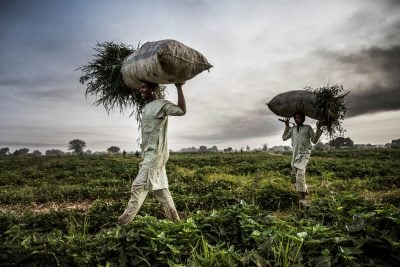Uganda has ordered a social media shut down ahead of its violently contested presidential election on Thursday, a day after US social media giant Facebook removed fake accounts linked to a Ugandan government ministry.
In a letter, Uganda Communications Commission executive director Irene Sewankambo ordered telecommunications companies to “immediately suspend any access and use” of social media and online messaging platforms as incumbent President Yoweri Museveni faces off against challenger Bobi Wine.
On Monday, Facebook said that a network of fake and duplicate accounts linked to the country’s Ministry of Information and Communications Technology has been removed ahead of Thursday’s poll.
“Given the impending election in Uganda, we moved quickly to investigate and take down this network,” Facebook said in a statement.
“We found this network to be linked to the Government Citizens Interaction Center at the Ministry of Information and Communications Technology in Uganda. They used fake and duplicate accounts to manage pages, comment on other people’s content, impersonate users, (and) re-share posts in groups to make them appear more popular than they were,” Facebook said.
Facebook’s decision riled the government, with presidential spokesman Don Wanyama accusing the company of “interfering in the electoral process of Uganda.”
The run up to Uganda’s election has been marred by significant violence. Dozens of Bobi Wine’s supporters and one of his bodyguards have been killed during the campaign, many of them shot dead by police and other security forces. Opposition events have been forcibly dispersed and activists subjected to beatings, according to human rights monitors.
The government insists that opposition events are breaking social distancing rules designed to prevent the spread of Covid-19. 54 people were killed on 18 and 19 November in the protests and unrest that followed Bobi Wine’s arrest for allegedly breaking restrictions. Wine was later released on bail.
US Capitol attack shines spotlight on social media
Facebook’s action preceding the social media ban took place as global debate rages over how social media giants should regulate fake or violent political content following the deadly storming of the US Capitol by a mob of President Donald Trump’s supporters.
Following the Washington DC riot – which left five dead including a police officer – Twitter took the unprecedented decision of permanently banning Trump from Twitter, citing the “risk of further incitement of violence”.
Trump’s Twitter messages played an integral role in his rise from political maverick to the Presidency and acted as a megaphone amplifying his policies, grievances and feuds.
Until now, US social media giants have appeared reluctant to take a tough line on controversial political content disseminated by sitting governments ahead of African elections. Social media platforms are frequently the focus of government-imposed blackouts in the run up to elections in order to prevent opposition activists from mobilising.
Uganda has taken a notably strict approach to social media. In 2018, Uganda imposed a daily levy affecting more than 60 online platforms including Facebook, WhatsApp and Twitter. To use such site, Ugandans are expected to pay a tax of 200 Ugandan shillings ($0.05) a day in a move that many saw as an attempt to stifle criticism of the government.
On 7 September 2020, the Uganda Communications Commission issued a further public notice stating that anyone wishing to publish information online must be licensed ahead of a 5 October deadline.
The move sparked condemnation from Amnesty International who said it will “turn social media into a minefield” and which it claimed represented the “latest blow to the right to freedom of expression.”
Want to continue reading? Subscribe today.
You've read all your free articles for this month! Subscribe now to enjoy full access to our content.
Digital Monthly
£8.00 / month
Receive full unlimited access to our articles, opinions, podcasts and more.
Digital Yearly
£70.00 / year
Our best value offer - save £26 and gain access to all of our digital content for an entire year!
 Sign in with Google
Sign in with Google 



